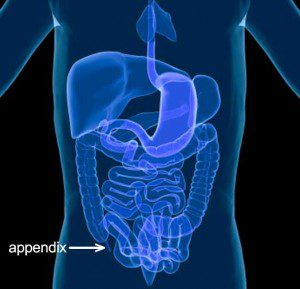By Jordan & Kyla Miller, R.H.N.
Contributing Writer for Wake Up World
Vitamin B 12 is considered among one of the most important nutrients today. In fact, studies are now showing that B 12 supplementation is critical in everyone’s diet, as nearly all of us are deficient in this vital nutrient. It’s recognition among many health enthusiasts has given vitamin B12 its recent claim to fame.
Vitamin B12 has always been an essential nutrient in everyone’s diet. In fact, it is only until now that we are beginning to understand the critical role it plays in the human body. There has been some recent revelations as to the connection of vitamin B12 and the appendix.
The Framingham Study
As discussed in his interview, Dr. Brian Clement explains the Framingham Study was one of the most significant biological tests ever performed on human beings; it helped better understand and quantify the levels of B12 in humans at that time. This study, which took place in Framingham Massachusetts during the late 40’s, performed many biological tests (including identifying levels of B12) of 4th generation inhabitants within the area. Interestingly enough, the study found that a very significant amount of the population ( well over 1/3) were deficient in B12 even though 99% of the inhabitants consumed meat.
[pro_ad_display_adzone id=”110028″]
B12 and the Evolution of the Appendix
Dr. clement explains that vitamin B12 is not a vitamin; rather it “is a soil bacteria which was improperly classified under B vitamins because we did not have a probiotic or a healthy biology department back when B12 was first discovered.” The way B12 operates (or should be operating) is that it travels into the small intestine (through food), which would then make its way into the large intestine (like any other probiotic would do) where it would cultivate so that there wasn’t a need to take B12 supplementation on a daily basis. Dr. clement explains that B12 has a significant role to play in the human body. B12 is an important factor in the development of neurons and how they interact with the nervous system.
Equipped with this information, Dr. Clement continued to dive further into his research to help him understand the reasons behind such B12 deficiencies outlined in the Framingham Study. He began studying anatomical diagrams from the last 300 years, particularly focusing on the digestive system. Looking through the early diagrams (circa 1700’s), Dr. clement notes that the large intestine looked “radically different” than it does today. He explains that at the end of the digestive system, where the small intestine dumps digested food, there was a pocket that resembled the front of a boot that was historically and consistently there presumably before the 1700’s. Once the 20th century rolled around however, this anatomical structure was nearly absent, and when we entered the 21st century, this boot-like structure was completely shriveled up into what we now know as the appendix (something that modern medicine believes is absolutely irrelevant).
As a result of this change, Dr Clement explains that B12 now has to be consistently consumed by all humans on a daily basis so that we can maintain adequate levels. The reason for this is that the prior boot-like pocket that previously nestled at the end of the large intestine was the “organic garden” where soil based bacteria (B12) from foods (primarily vegetables) would cultivate in this pocket and maintain adequate levels of B12.
Where to get B12?
Since the pocket is no longer present, it is understood that everyone has B12 deficiencies, and as a result, require B12 supplementation in the form of Methylcobalamine. Methylcobalamine is the natural form found in nature within the soil and subsequently within our food. Try your best to avoid B12 products with the primary ingredient cyanocobalamine. This is a synthetic version that is not found in nature at all; in fact it is made with cyanide, a rather poisonous substance to the human body in high quantities. Another excellent source of B12 is natto – a fermented soy-based product.
Interestingly enough, the highest incidences of B12 deficiency are found among people who consume the highest amounts of meat and dairy. The reason why this is, is that they are consuming a neutered form of B12 that is not usable by the body. Furthermore, the cooking of meat destroys beneficial bacteria (B12).
Once Dr. clement came to this revelation and validated it with scientific data and information, he concluded, based on the widespread vitamin B12 deficiency occurring today, why we, as a human species, have an ever growing number of cases of dementia, Alzheimer’s disease and other forms of neurological disorders in the industrial nations of the world today.
Your question: Do you supplement with vitamin B12? (post your comments below)
Article Sources:
https://www.youtube.com
http://www.ars.usda.gov
http://www.dadamo.com
Previous Article
- Understanding Protein and Protein Sources
- Ten Other Uses for Salt
- The Medicinal Properties of Lilies
- The Health Benefits of Cinnamon
- The Many Health Benefits of Raw Honey
About the Author
Jordan & Kyla are passionate about health; together, they have overcome many illnesses through dietary and lifestyle changes, and the art of practicing a positive mindset daily. Kyla is a Registered Holistic Nutritionist and is currently studying to become a Reiki Master, and Jordan is currently learning about traditional North American medicinal herbs, in hopes of becoming a Certified Herbalist. For more information, please visit guidinginstincts.com or nutritionalinstincts.com for nutritional consultations.
[pro_ad_display_adzone id=”110027″]
Disclaimer: This article is not intended to provide medical advice, diagnosis or treatment. Views expressed here do not necessarily reflect those of Wake Up World or its staff.







